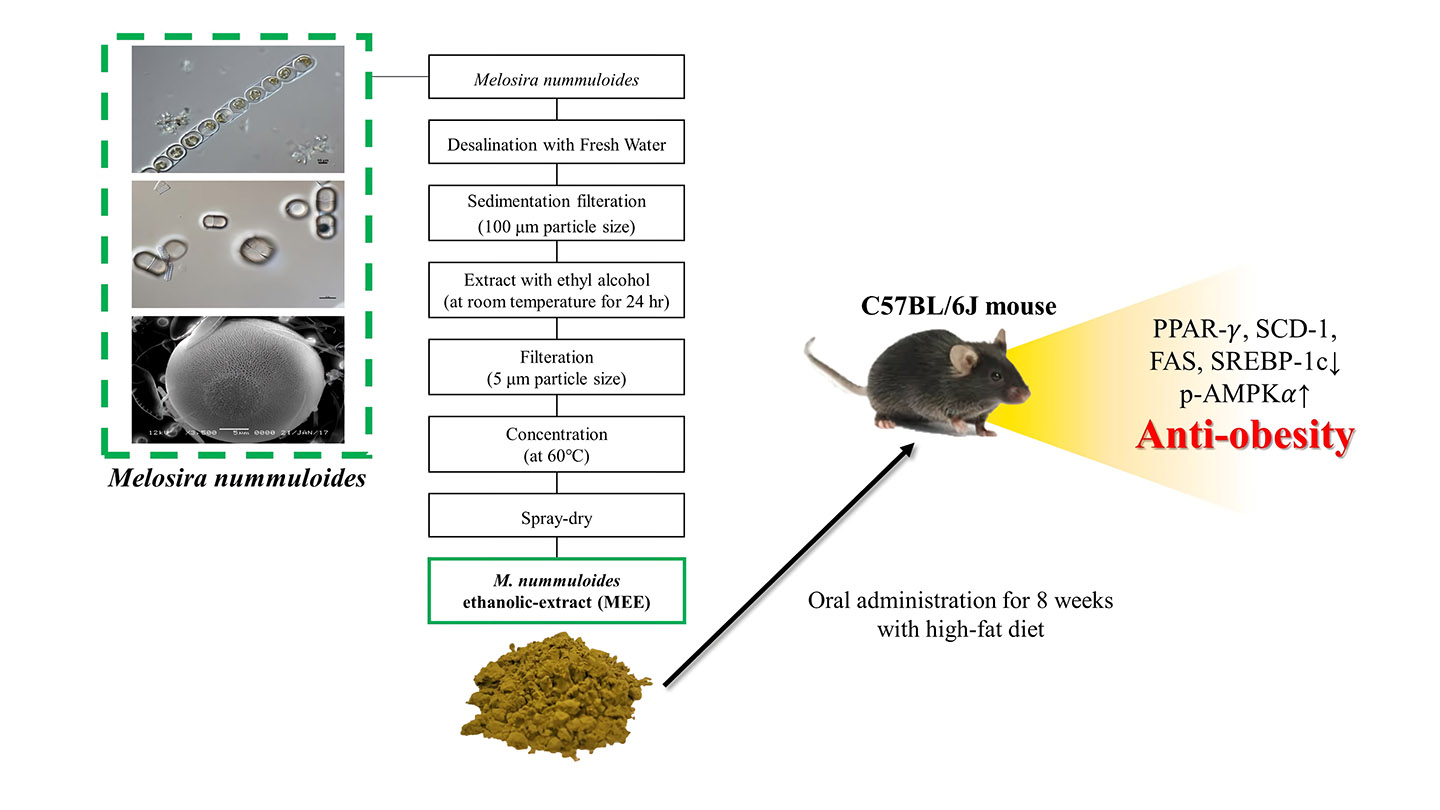Anti-obesity effect of Microalga, Melosira nummuloieds ethanolic extract in high-fat-diet-induced obesity C57BL/6J mice
DOI:
https://doi.org/10.31989/ffhd.v12i12.1002Abstract
Background: Melosira nummuloides is a microalga belonging to the Melosiracease diatom. The ability of the diatoms to mass-produce essential fatty acids and carotenoid pigments was reported, which has driven research and their industrial application. Melosira nummuloides mass-cultivated with Jeju Lava sea water contains fucoxanthin, which has excellent biological properties such as antioxidant, anti-inflammatory, anti-cancer, and anti-obesity activities. The effect of M. nummuloides ethanolic extract (MEE) on the reduction of fat accumulation was evaluated.
Methods: C57BL/6J mice fed a high-fat diet (HFD) were treated over 8 weeks with Melosira ethanolic extract. Cholesterol in serum and triglyceride in liver after the 8-week were evaluated. The expression of SREBP-1c, FAS, PPAR-γ, SCD-1 and p-AMPK were measured by western blotting respectively.
Results: The MEE-treated C57BL/6J showed significant body weight and visceral fat loss compared to HFD group. Cholesterol in serum and triglyceride levels in liver showed a significant decrease in MEE groups. Levels of SREBP-1c, FAS, PPAR-γ and SCD-1 were low in mice fed an HFD+MEE.
Conclusion: These results show MEE reduces blood lipid levels by regulating the expression of factors related to lipid synthesis and adipocyte differentiation in adipose tissue and inhibiting new lipid synthesis in the liver. M. nummuloides ethanolic extract confirmed its suitability as an anti-obesity agent.

Keywords: Melosira nummuloides; C57BL/6J mice; obesity: weight loss; fatty acid synthesis
Downloads
Published
Issue
Section
License
Authors retain the copyright of their articles and grant the Functional Food Center (FFC) and its journals the right of first publication under the terms of the Creative Commons Attribution 4.0 International License.
This license permits unrestricted use, distribution, and reproduction in any medium, including commercial use, provided the original author(s) and source are properly credited. Authors may post and share their published work freely, provided that the original publication in this journal is acknowledged.
By submitting to this journal, authors confirm that their manuscripts are original, not under consideration elsewhere, and that they hold the necessary rights to grant this license. The Functional Food Center encourages open scientific exchange and allows derivative and extended works, provided attribution to the original publication is maintained.